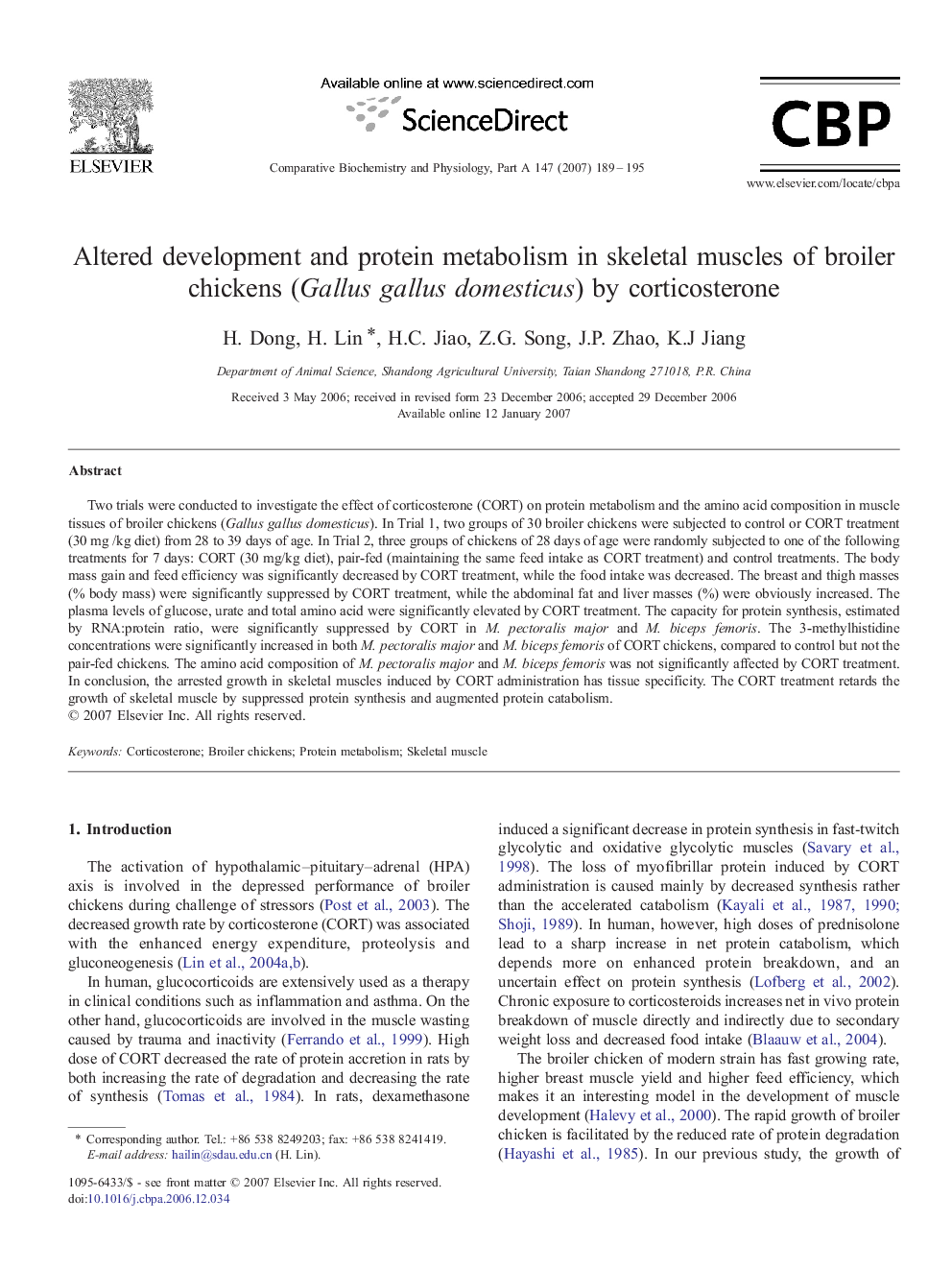| Article ID | Journal | Published Year | Pages | File Type |
|---|---|---|---|---|
| 1974851 | Comparative Biochemistry and Physiology Part A: Molecular & Integrative Physiology | 2007 | 7 Pages |
Two trials were conducted to investigate the effect of corticosterone (CORT) on protein metabolism and the amino acid composition in muscle tissues of broiler chickens (Gallus gallus domesticus). In Trial 1, two groups of 30 broiler chickens were subjected to control or CORT treatment (30 mg /kg diet) from 28 to 39 days of age. In Trial 2, three groups of chickens of 28 days of age were randomly subjected to one of the following treatments for 7 days: CORT (30 mg/kg diet), pair-fed (maintaining the same feed intake as CORT treatment) and control treatments. The body mass gain and feed efficiency was significantly decreased by CORT treatment, while the food intake was decreased. The breast and thigh masses (% body mass) were significantly suppressed by CORT treatment, while the abdominal fat and liver masses (%) were obviously increased. The plasma levels of glucose, urate and total amino acid were significantly elevated by CORT treatment. The capacity for protein synthesis, estimated by RNA:protein ratio, were significantly suppressed by CORT in M. pectoralis major and M. biceps femoris. The 3-methylhistidine concentrations were significantly increased in both M. pectoralis major and M. biceps femoris of CORT chickens, compared to control but not the pair-fed chickens. The amino acid composition of M. pectoralis major and M. biceps femoris was not significantly affected by CORT treatment. In conclusion, the arrested growth in skeletal muscles induced by CORT administration has tissue specificity. The CORT treatment retards the growth of skeletal muscle by suppressed protein synthesis and augmented protein catabolism.
